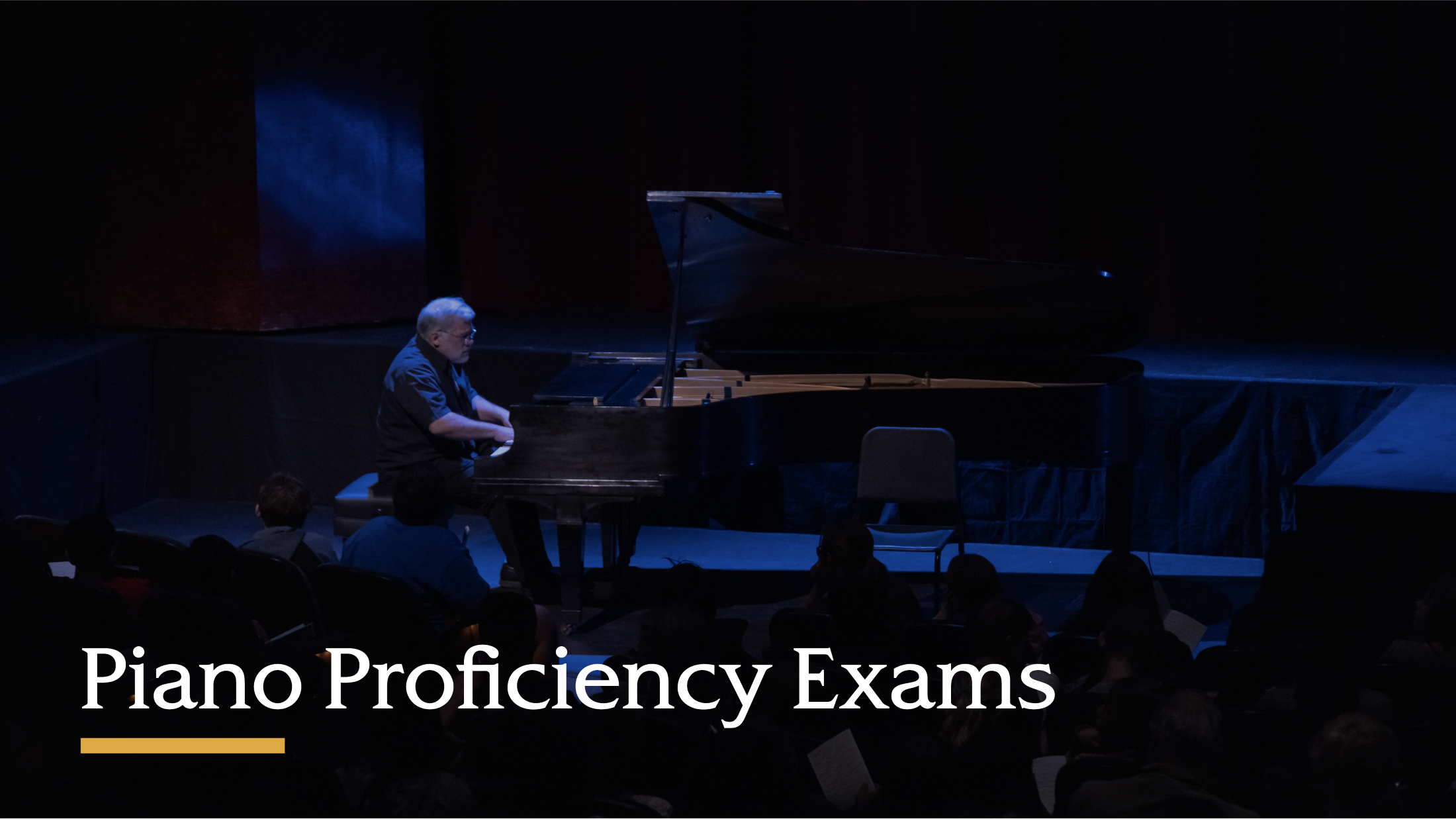Piano Proficiency Exams
All music majors must be enrolled in Music 25A or 25B until they have passed their piano proficiency exam. Instructors will determine student placement in 25A or 25B. For those students with a piano background who feel they are capable of passing the piano proficiency exam prior to enrolling in the class, the exam will be administered once each semester Please contact Dr. Namik Sultanov for more information. If a student has passed the piano proficiency exam, he or she does not need to enroll in 25A or 25B.
We encourage all lower-division majors to pass the piano requirement before reading upper-division status. Freshman in particular should inquire immediately about 25A, as the skills acquired will help in MUSC 1A (Music Theory) and MUSC 1B (Musicianship). Upper-division transfer music majors must enroll in class piano each semester until their proficiency requirement has been passed.
It is possible to receive a passing grade in 25A or 25B and still not pass the proficiency exam. Often a student will make enormous progress during a given term but still not pass all areas of the exam. You must complete the exam even if both 25A or 25B appear on your transcript. The complete piano proficiency exam sheet will be placed in your student file.
Piano Proficiency Requirements
Play a composition of intermediate difficulty approved by the instructor. Suggestions include literature comparable to Easier Piano Classics (Hal Leonard Publishing), a Sonatina of Clementi or Kuhlau, a Bach Two-Part Invention, or other repertoire approved by the instructor or Area Coordinator. In order to pass, the student must demonstrate careful execution of the notation (dynamics, articulation, tempo, continuity, etc.), stylistic character, and musicianship. Correct use of the pedal must be demonstrated if appropriate.
Play a choral-style or four-part hymn, a Twentieth century composition provided by the instructor, or an accompaniment to a piece in your area (with instructor approval). Your choice should be appropriate with your degree objectives.
Technical Skills
- Play major and harmonic minor scales, two octaves, ascending and descending, hands together (eighth-note = 80) with correct fingering. Speed is not as critical as consistency and continuity. The instructor will choose which scales are executed.
- Execute natural and melodic forms of a minor scale chosen by the instructor.
- Play an alternate scale system or mode (one hand is acceptable) such as whole tone, chromatic, octatonic, pentatonic, or mode.
- Play major and minor chord progressions in keys chosen by instructor: I-IV6/4-I-V6/5-I (two-hand harmony). Instructors will provide handouts.
- Play above progression in inversions (one hand only, see instructor).
Sight Reading and Harmonization
- Sight read an elementary level piece.
- Harmonize a simple melody at sight using I, IV, and V chords in the left hand.
